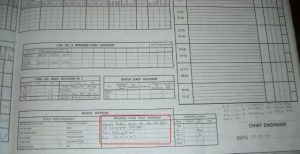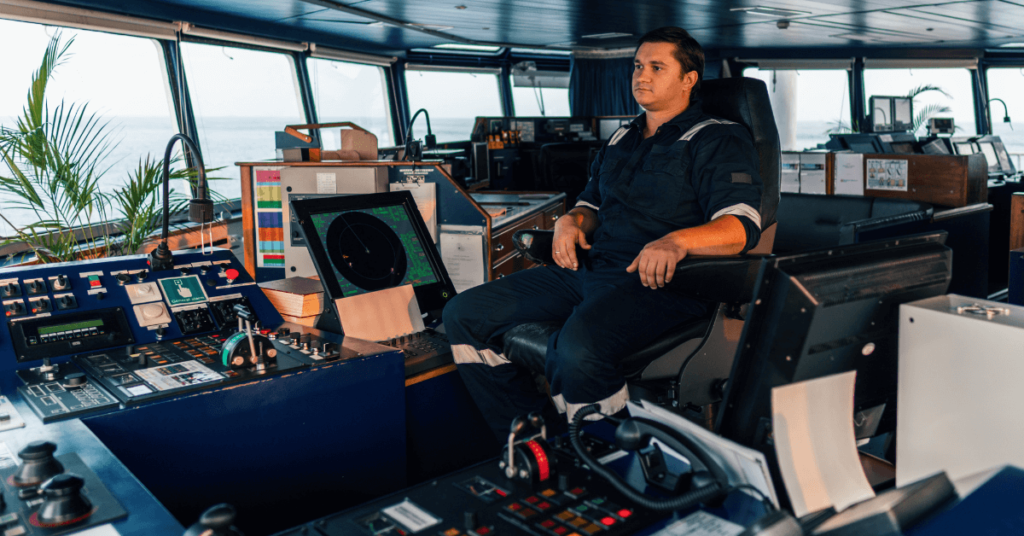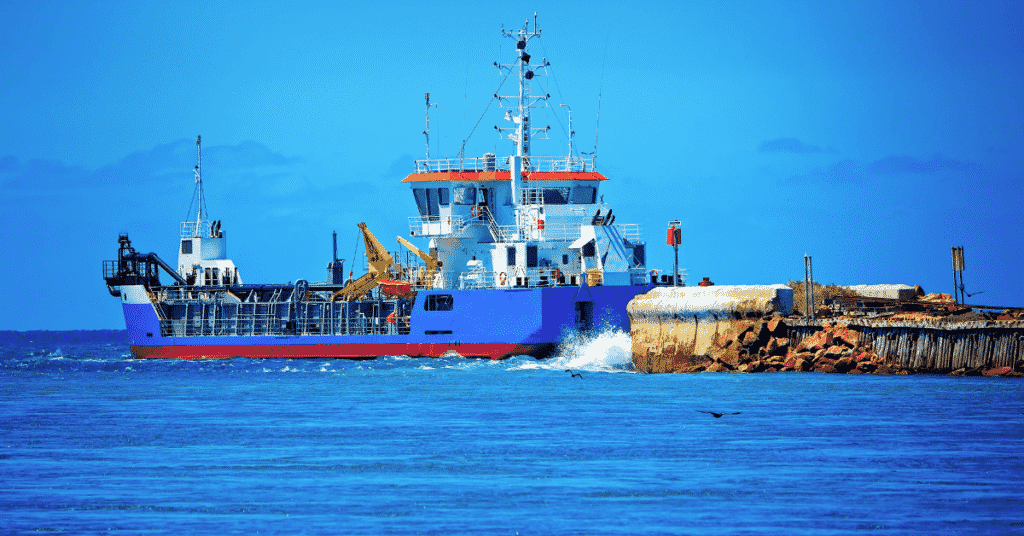Entries To Be Made in Ship’s Engine Room Logbook
Logbooks are an important part of daily routines carried out onboard ships as they help in keeping together all important records and parameters for future reference. Similar to the points discussed in our previous article on entries in bridge log book, it is important that ship engineers are also liable to maintain a separate Engine Room Log Book as part of their routine. In this article, we will discuss the important things that are to be mentioned in the engine room log book.
An engine room logbook is a track record of all ship machinery parameters, performance, maintenance, and malfunctions. The recorded values and information are used as a reference, to compare and record data to assess the ongoing performance of different engine room machinery.
The log book entries are very important during machinery breakdown and accidents are also taken as reference or evidence by the insurance company, surveyor etc. for the insurance claim if some accidents take place.

A responsible marine engineer Watchkeeper has to fill the logbook for his/her own watch period without fail, along with the signatures of all watchkeepers for their concerned watch timings.
Chief engineer also must countersign this book every day to make sure all the entries are being filled in it as per the company requirement.
In a manned engine room, during every watch machinery data is recorded manually taking the reading from the local gauges. It is a common practice that watchkeeper’s assistant for that particular watch (TME, Oiler etc.) has recorded all-important machinery local parameters. The entry of these parameters must only be done by the watch-keeping engineer and not by the assistant.
The following information must be written in a new logbook:
- Ship’s name
- International Maritime Organization (IMO) number
- Call Sign
- Maritime Mobile Service Identity (MMSI) Number
- Port of Registry
- Engine room team including all engineer officers and ratings
Following entries must be filled in the engine room logbook:
- Date and voyage where the ship is heading
- The position of the ship (at sea, at port or at anchorage)
- Readings and Parameters of Main Propulsion Engine
- Readings and Parameters of Other running Machinery
- Main engine RPM and Load on the Engine
- Speed of the ship in knots
- Daily Entry for all the lube oil ROB ( Rest or Remaining onboard)
- Daily entry for all grade of Fuel Oil Remaining onboard
- Remaining onboard value of Sludge and Bilge
- Running Hour Counter for important machinery
- Running details of Oil Pollution Prevention Equipment (Time and Position)
- Record of any Major Breakdown and reason for the same
- Record of Incident or accident in the engine room (Fire, Flooding etc)
- Record of grounding, collision and other accidents
- Record of Major overhauling of important machinery
- Record of all Bunkering operation ( Time, Place and quantity)
- Record of all Sludge and garbage disposal operation
- Remarks for additional work done in a watch
- Remarks for Surveys and PSC inspection
- Operation of MARPOL equipment with ship position in Lat and Long
- Remarks and entries according to national and international rules and regulations; measures takes in the interest of sea-worthiness; safety of life at sea; care of cargo; safety of the vessel and environmental protection
- Record the soundings of bilges/empty tanksEvery instance of behavior by an engine room crew inside the engine room, which may result in the dismissal of that seafarer or other disciplinary measures, including behavior involving violence, causing danger to any person, criminal damage, alcohol, or the use, supply, or possession of controlled drugs or the misuse of any prescription medicine
- The presence of stowaway on board
- Acts of piracy against the ship or acts of piracy witnessed against another ship
- Interventions by a port state or coastal state affecting the normal operation of the ship, including detention of the ship for violation of safety or marine environment protection standards
- Any kind of civil claims
- Upon the arrival or departure of a vessel from a port, the present quantity of sludge/ bilge and fuel and lube oil quantity on ship must be recorded
- Upon the departure of the vessel from every port, the quantity of fuel and lube oil received at port must be recorded
- During the staying of a vessel in a port, the following must be recorded:
– Any spare or machinery part loaded or discharged.
– The receipt, if any, of fuel, and other supplies.
– Whether There were any crew change and name/rank of new engine room crew - Signature of the concerned watchkeeper
- Signature of Chief engineer to make sure all entries are in position
Few things to be kept in mind while entering records/ data in ship’s engine room log book:
- Time format in hours using four digits – 0001 to 2400
- All entries must be in readable handwriting and must record all events clearly, briefly and accurately.
- The duration of the voyage over the last 24 hours taking into consideration the hour change
- A ship shall be required to preserve the official logbook for a period of 3 years after the last entry was made
- If a wrong entry has been made, it should be corrected by single strike along with the signature of the Watchkeeper, who corrected the entry
- The log book should be kept in the engine room and should be readily available for inspection demanded by:
– Company appointed Executive Office/ internal surveyor
– Class surveyor or insurance surveyor
– The port state authority at a port
Under the Maritime regulations, following acts by a ship staff are considered as an offence:
- If a person destroys or mutilates an engine-room logbook or an entry in an engine-room logbook
- If a person renders illegible to make an entry in an engine-room logbook
- If a person makes a false or fraudulent entry in, or an omission from, an engine-room logbook
- If a person signs an entry in an engine-room logbook knowing the entry to be false or fraudulent
You may also like to read – What is Chain Register On Board Ships?
Disclaimer: The authors’ views expressed in this article do not necessarily reflect the views of Marine Insight. Data and charts, if used, in the article have been sourced from available information and have not been authenticated by any statutory authority. The author and Marine Insight do not claim it to be accurate nor accept any responsibility for the same. The views constitute only the opinions and do not constitute any guidelines or recommendation on any course of action to be followed by the reader.
The article or images cannot be reproduced, copied, shared or used in any form without the permission of the author and Marine Insight.
Do you have info to share with us ? Suggest a correction
Latest Shipboard Guidelines Articles You Would Like:
Subscribe To Our Newsletters
By subscribing, you agree to our Privacy Policy and may receive occasional deal communications; you can unsubscribe anytime.


















Very interesting information on marine time accidents, safe working practice etc… a perfect website for studying seafarers to acquire useful information. 🙂
I need standard parameters reading on slow speed engine, eg.inlet and outlet cooling weter
I can’t seem to find a company that makes a custom log book for my engine room (dredging tugboat) that allows me to tell them the sections and tables I want in my book. Anyone have any contacts they can send me? I’d be thankful for the networking.
Where is the requirement to have Engine Room logbook written? Can’t find it in LIST OF CERTIFICATES AND DOCUMENTS REQUIRED TO BE CARRIED ON BOARD SHIPS, 2017 MEPC.1/Circ.873, nor in PROCEDURES FOR PORT STATE CONTROL, 2017 A 30/Res.1119.